This time he saw me looking at him and quickly got up and left.I promptly warned those around me about the incident and made a note to myself to make sure I never leave anything when I use the bathroom. While there has always been petty crime in Greece the amount has risen exponentially over the last few years and is now becoming endemic in some areas. This is no longer a place where you can leave your possessions even for few minutes which is deeply saddening.
Later on while arranging to meet with a friend at another Starbucks near Kamara our conversation was interrupted by a junkie asking for money, when I refused he got nasty and started grabbing at my friend's jacket, only the threat of a phone call to the police seemed to get through to him as he was in such an addled state they I'm not sure he was fully aware of what he was doing. Like crime in general illegal drug use in the centre is on the rise and with the economic crisis hitting hard people are far less likely to give beggars anything making them more insistent in turn as they become more desperate.
Finally, I was covering a protest march by Thessaloniki football fans which turned violent and led to a series of attacks on cafes and other businesses alone the seafront. Amongst those was the White Tower Starbucks which become the target of the fans' fury, however the situation was not helped when some bright spark decided to lock the front doors, leaving customers alone inside. Luckily, a side door remained open and so they found their own way out amidst the chaos inside.
The strangest thing about these riots was the composition and choices of those taking part, in contrast to other such clashes the participants were all ages from kids of no more than ten (who happily covered every surface available in graffiti) to middle aged guys, nor were the targets of their wrath the usual ones such as banks and government buildings but also included a seemingly random assortment of supermarkets, cafes and apartment blocks. The one thing that was sure was that the thousands who took to the street were outraged and their anger once started spiralled out of control, perhaps reflecting deeper frustrations many Greeks feel over how their lives are going. Pummelled by austerity measures and an economy in free fall many people are incensed by what is happening in the country and so looking to lash out.
All of these incidents happened in the space of 12 hours.
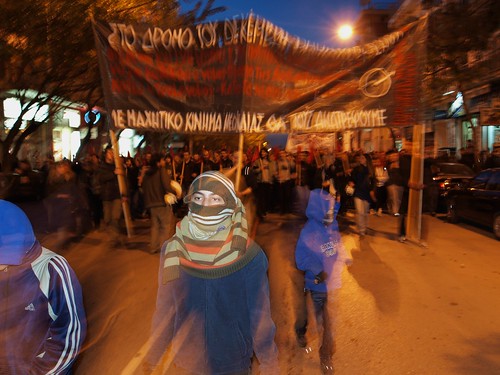
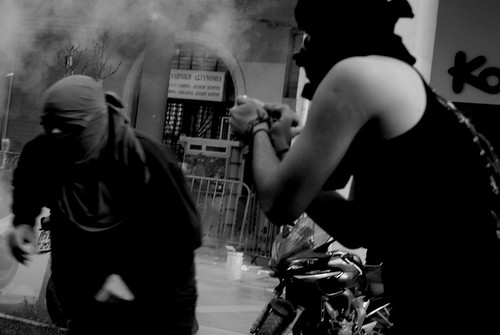
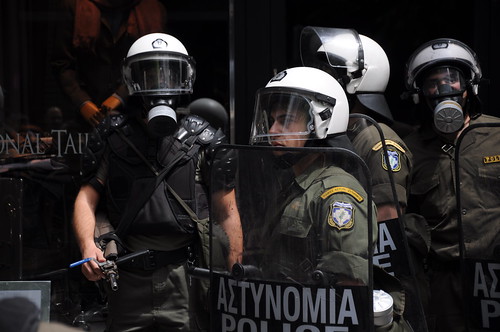


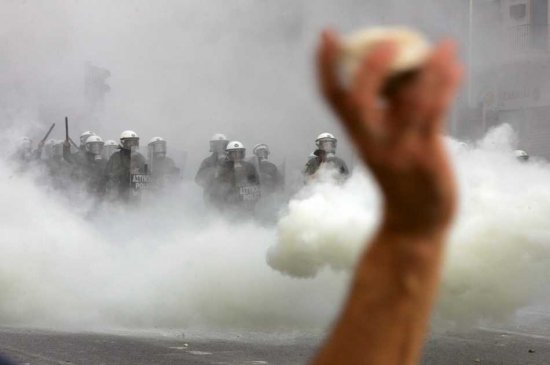




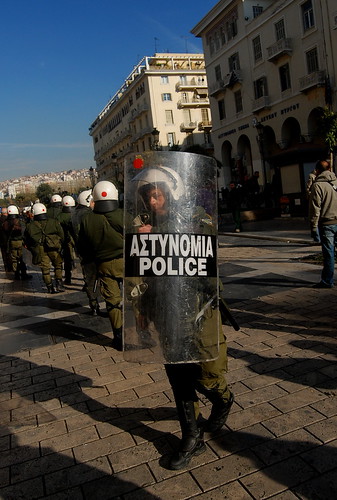

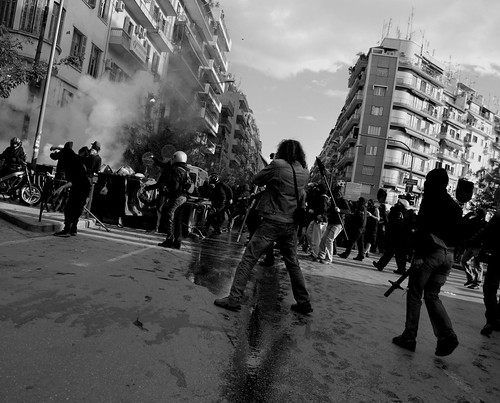

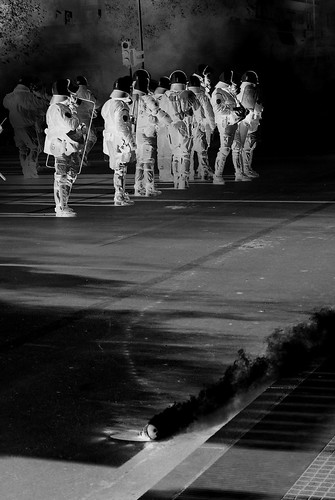







For me, however that experience came to me in my forties, hardly an age given over to violent uncontrollable emotion, Yet something in me was woken by the news that police officers had gunned down a 15 year old for no apparent reason in central Athens. I cannot say what I expected when I joined a demonstration on the following morning, an uncharacteristically warm Sunday morning. perhaps a small march with a few hundred (if that) politically active students which would last about an hour before everyone went back home or grabbed a bit to eat.
Instead thousands of people of all ages appeared and then more and still more till the marcher numbered anywhere near 10,000. But as well as the larger than expected turn out I noticed other, more worrisome signs such as the guys rapidly stuffing the necks of beer bottles with cloth.
From the beginning there was a feeling of anger and rage from many in the march, an undefinable sense that some unwritten covenent had been broken and that it wasn't business as usual. That was confirmed when the march verred off its usual route and made its way to the central police station in Aristotelous Square. Moving a little ahead of the front of the crowd I witnessed the first wave of clashes between protesters and riot police, a scene that would be repeated endless times over the following month in Thessaloniki and every other Greek city.
The police responded with endless rounds of tear gas and baton charges yet, almost miraculously people scattered then reformed, determined not to be intimidated by them. The rage and anger towards the police then mutated as the protests went on day after day into a general sense of violent discontent with the authorities in general.
Witnessing these events reminded me of all the account I had read of the student revolts of the late Sixties including Paris in 1968. Yet these protesters were not just teens or college students but rather came from virtually every age group including pensioners who red with anger would hurl the most furious insults at police officers.
The other aspect of the events of December and January was the sense of unreality that came from listening to the mainstream Greek media's account of the events which ranged from clueless to perneciously misleading. At a loss to explain a revolt which owed nothing to traditional party politics they attempted to describe it either in terms of mindless hooliganism or shadowy conspiracy theories.
It was then that I realised the true power of internet tools such as Twitter, Facebook, Youtube and blogs as they quickly proved a far more reliable source of information than TV stations which lumbered through the crisis like a half-blind brontosauras.
Two years on the conditions which fuelled the massive protests of 2008 have worsened still further and the anger feel by many then has grown and intensified as people feel betrayed by their leaders. The ruling political caste seems even more cut off from its popular grassroots support than ever before and seem oblivious that they are standing in the middle of a pool of petrol flicking cigarette butts into the void.